Karen Pinchin has written a remarkable new book, “Kings Of Their Own Ocean, Tuna, Obsession, And The Future Of Our Seas.” It is an investigation, a careful, personal recounting of a search for truth with both main parties already deceased, and a respectful biography of Rhode Island’s own Al Anderson. Each page owes a debt to a single bluefin tuna he tagged in 2004. Marine scientist Molly Lutcavage later tagged and released the same fish, leaving her to migrate, mate and finally perish in a warm Portuguese sea of almadraba nets. “She may have even crossed the Atlantic more than once. Lutcavage eventually gave the fish a name, Amelia, for Amelia Earhart, the iconic woman who had crossed the same ocean on currents of a different kind.”
“I came into this with a very beginners eye: who’s this guy, what’s this fish?” Pinchin told me. Realizing the unusual access afforded by Al’s widow Daryl, she absorbed volumes of his personal notes, manuscripts, dates, and sea logs. “He was not a perfect person and a lot of people really hated him, I mean truly hated him. I realized I had to approach him with care, because Daryl was giving me this incredible access,” Pinchin said. Anderson was a divisive captain and character, forward thinking, frequently rude and regularly ridiculed by anglers for tagging and releasing while they stuffed coolers and bank accounts. Captain Al understood the power of his work, unequivocally.
“Kings Of Their Own Ocean” travels from Snug Harbor to Gloucester and Nova Scotia, to Madrid and Spain’s Barbate harbor, with wonderfully detailed histories of our reliance on the sea for food, commerce and currency. Her words guide readers to those Phoenician-designed almadraba nets, deployed for thousands of years and lands where, “High watch towers, used to signal tuna catching fishermen on the region’s beaches, dot the landscape, with the town’s walls and a river sprawling in the distance.”
We meet fishermen who for centuries caught and cut fish for their people then watched as exploding Japanese markets consumed their catches within hours.
“These were strange and uneasy times, as families found themselves split between ancient culture and profits, between catching and selling as many bluefin as they could to a foreign market while lamenting the loss of those same fish in their own waters.” That line is literary cordage woven through her book, revealing an oft-repeated cycle of greed and depletion with sufficient denial to wash away all the blood.
“People feel connected to bluefin tuna, almost in a spiritual way”
Pinchin walks us through federal and international regulations meant, on paper anyway, to protect a highly migratory species while money flowed across borders and tables. She introduces fishermen pressured to provide superior quality tuna with harvest methods of nets and knowledge now fused with high voltage luparas. While that five pound bluefin was Pinchin’s inspiration, she met a familiar fate. “Amelia died instantly from a direct shot to the head, her blood lazily billowing through the water as her eyes grew flat and empty.”
After days at sea, watching a man rolling a thin tube of soft and deep red meat between three fingers, smelling, tasting, rolling more, fishermen wait for an old school test of fat and flavor, of how a fish was handled from the moment they took its life to this anxious, rubber boot shuffle on worn wooden docks. All that rolling ends with an offer, a per pound price for the life of a majestic animal, an evolutionary survivor hunted by man for centuries. If accepted, fishermen release a bluefin to be quickly shipped overseas for eager, hungry customers, willing to pay dearly for such a sea treasure.
“Kings Of Their Own Ocean” is a compendium of sorts, a much needed history of our reliance on fish, masterfully woven with a modicum of compassion and precise citation, a reflection of the author’s investigative journalism expertise. We humans savor moments of victory over other species then shrug when our stories thin from all the taking so Pinchin provides ample science to support population dynamics and pressures, much of which is traceable back to Al Anderson. She delivers those who denied trans-ocean migrations and reasons for falling harvest supported by science and then lobbied against harvest quotas necessary not just to secure cold plates of nigiri, but to save travelling populations of apex predators unconcerned with some red pen chart lines. “Science doesn’t hold abstract authority,” she wrote, “It is a practice and a profession incrementally built by trial and error over generations, and I am always wary when any one person or institution claims power or authority over its gradual, deeply human process.”
“Flashing a rainbow of colors in agitation”
Al Anderson tagged more than 60,000 fish, including more than 5000 juvenile bluefin tuna. He was resolute in his belief in science, which some seem to be abandoning these days. “When asked if it bothered him that people hated him, I think he used it as his superpower. That’s still a question I think about sometimes. It’s a chicken and the egg thing. Did he incite the conflict and then revel in it or did he just have this skill set that allowed him to cope in this extreme, stressful environment? I think knowing that all these tagged fish were out there in the ocean, gave him a sense of his own power, of his own agency,” Pinchin said.
When I asked about his legacy, she said, “I think the only thing that kept him going, was the recognition from the scientific community, the government scientists who sent these letters, these tag returns; these were some of the highlights of his life. “He was a real, complex, human person.” The hopeful part of this story is that you can be a damaged person, you can treat people badly, but you are never beyond hope to contribute to society.”
Karen Pinchin has masterfully provided us with a history, current consideration and future hope for Atlantic bluefin tuna. If you see fish as more than meat in a cooler and can see beyond your own bow to a future of respect for science and abundance in our generation, read her words for a careful, complete voyage alongside tuna as they migrate in ancient cycles through deep, warm corridors learned over millennia, fall to our nets and hooks and feed a world obsessed with their flesh. “Writing this book has been the most fabulous experience for me as a journalist. I just feel very grateful,” Pinchin said. “Kings Of Their Own Ocean” is published by Dutton, an imprint of Penguin Random House and is available now as an eBook and audiobook.
Karen Pinchin is an award-winning investigative journalist and culinary school graduate. A recent Tow Fellow at PBS’s Frontline, she graduated from Columbia Journalism School with a master of arts in science journalism and has since been supported by the Canada Council for the Arts and the Sloan Foundation. Her work has appeared in Scientific American, Canadian Geographic, Hakai Magazine, The Globe and Mail, and The Walrus, among other outlets.
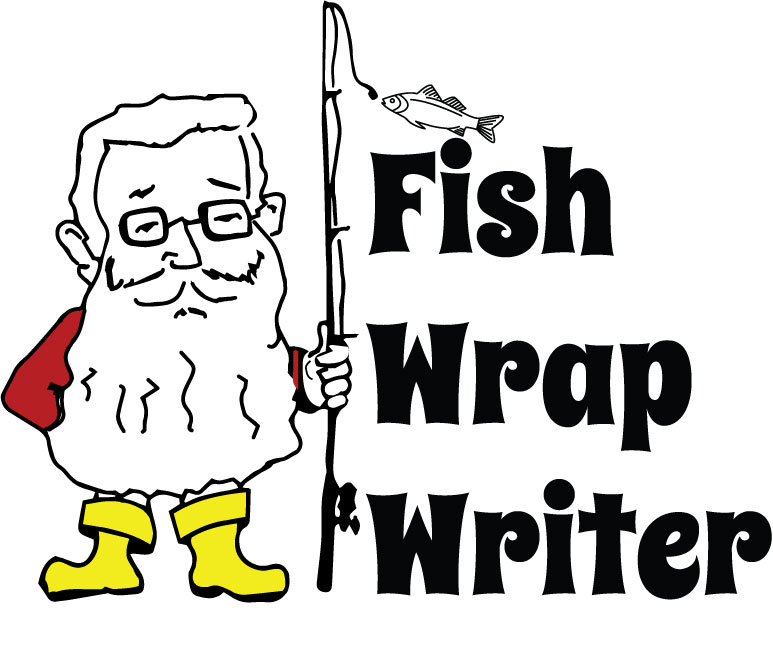
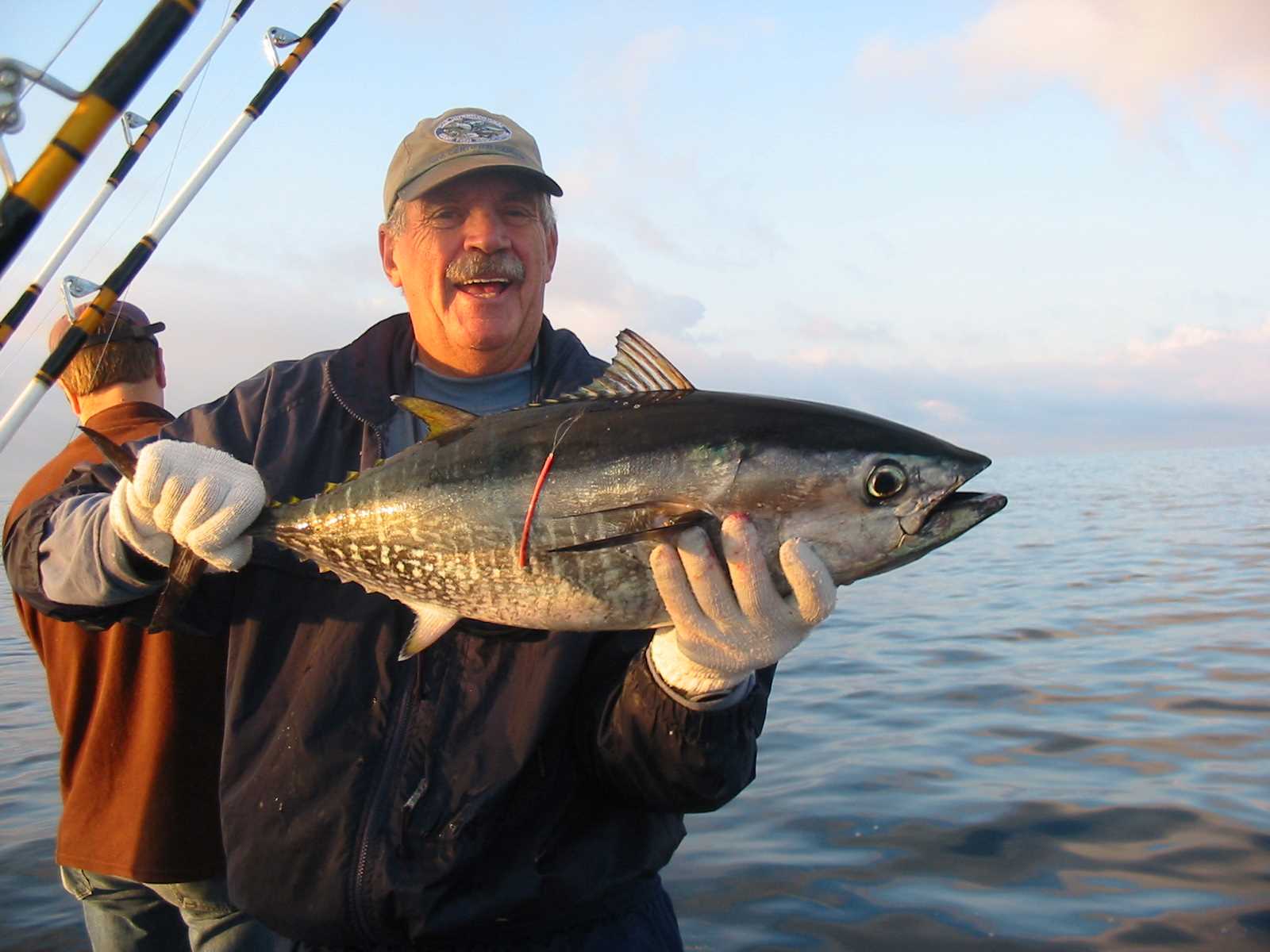
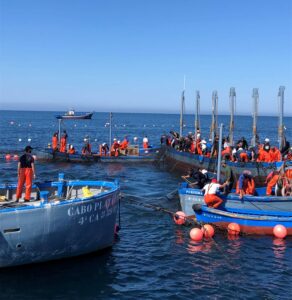
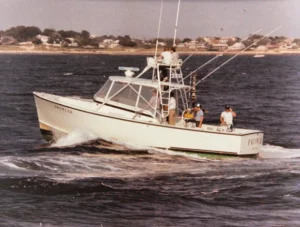
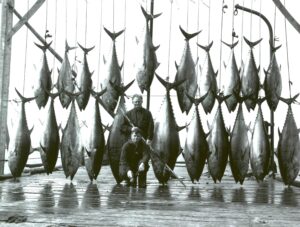
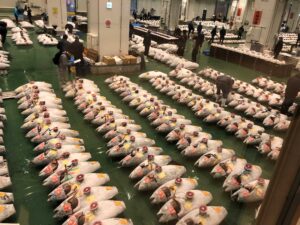
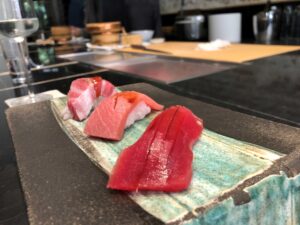
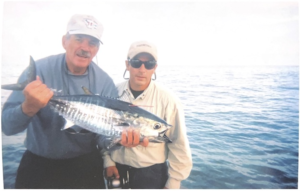
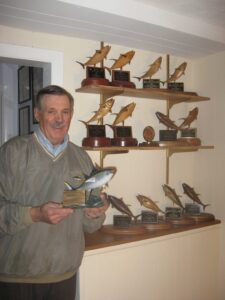

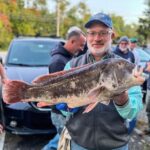


Wow. sounds like great read. Whales, tuna, stripers, cod. The list goes on .
The power and love of money and/or the power and love of sport should never be under-estimated. As sport fisherpersons (or commercial fisherpersons) we know this all too well.
I have a copy to loan if you would like to read it.
It is a great read. I’ve been connected to the commercial fishing industry for over 30 years and I read things in this book that I wish I had known back then. Every fishing person should read this. Commercial and sport.